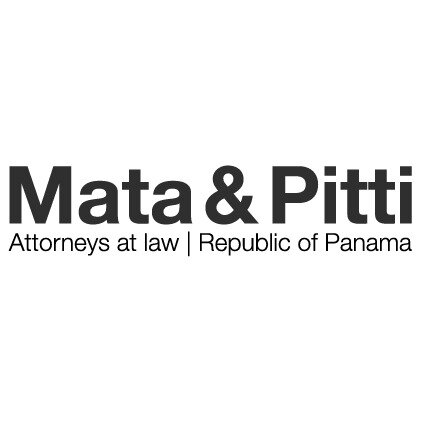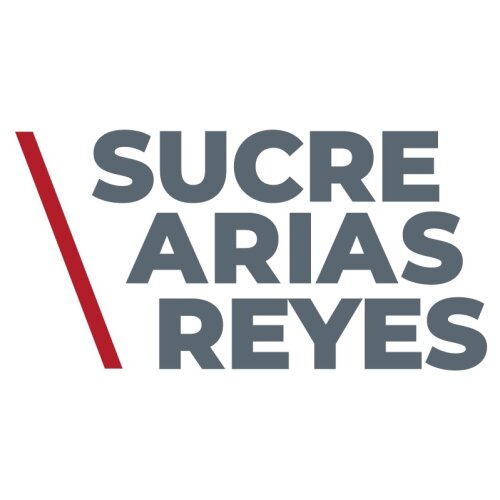Best Energy Regulatory Law Lawyers in Panama
Share your needs with us, get contacted by law firms.
Free. Takes 2 min.
Or refine your search by selecting a city:
List of the best lawyers in Panama
About Energy Regulatory Law in Panama
Energy Regulatory Law in Panama is a specialized area of law that governs the generation, distribution, commercialization, and consumption of energy throughout the country. It is primarily focused on electricity, renewable energy, hydrocarbon activities, and ensuring the functioning of energy markets in accordance with local statutes and international agreements. The Panamanian government, through various agencies and legislative frameworks, regulates the energy sector to promote fair competition, guarantee access, protect consumers, and support sustainable development.
Why You May Need a Lawyer
Individuals and businesses may encounter numerous situations where professional legal advice in Energy Regulatory Law becomes essential. Some common scenarios include:
- Negotiating and drafting energy contracts for supply, sale, or purchase of energy resources
- Securing permits and licenses for energy generation or distribution projects
- Resolving disputes between energy providers and consumers, including billing or service issues
- Representing clients in administrative hearings before regulatory bodies
- Compliance with environmental regulations and energy efficiency requirements
- Navigating mergers, acquisitions, or business restructuring in the energy sector
- Participating in public bids or tenders for energy infrastructure projects
- Advising on tax incentives and subsidies in renewable energy initiatives
- Managing issues related to grid connection and interconnection agreements
- Handling legal challenges regarding tariffs or rate adjustments
Local Laws Overview
Panama's energy sector is regulated by a combination of national laws, decrees, and resolutions. Key legislative elements include:
- Law 6 of February 3, 1997: This law reorganized the Panamanian electricity sector, encouraging private investment, and establishing the framework for tariffs, competition, and consumer protection.
- Energy Secretariat of Panama (Secretaría Nacional de Energía): The central regulatory body responsible for developing national energy policies and overseeing compliance.
- National Public Services Authority (Autoridad Nacional de los Servicios Públicos - ASEP): The authority in charge of supervising, regulating, and controlling the generation, transmission, and distribution of electricity, as well as ensuring fair market conditions.
- Environmental Licenses: All energy projects must adhere to environmental standards and obtain the necessary permits from the Ministry of Environment (Ministerio de Ambiente).
- Promotion of Renewable Energies (Law 45 of 2004 and Law 44 of 2011): These laws promote renewable energy projects through fiscal incentives, tax exemptions, and simplified permitting for solar, wind, biomass, and hydroelectric projects.
Other relevant regulations cover tariffs, energy efficiency, fuel imports, natural gas activities, and dispute resolution procedures. Updates and interpretations are regularly published by the relevant authorities.
Frequently Asked Questions
What is the main regulatory body for energy in Panama?
The main regulators are the National Public Services Authority (ASEP) and the Energy Secretariat, which oversee and enforce laws about electricity, hydrocarbon, and renewable energy activities.
Do I need a special license to produce renewable energy?
Yes, private entities or individuals intending to generate renewable energy for commercial use must obtain the appropriate generation license from ASEP, along with environmental permits.
Can I sell electricity generated from solar panels to the national grid?
Yes, Panama allows small and large scale electricity generators to connect to the grid and sell energy, provided that they comply with regulatory requirements and technical standards set by ASEP.
How are electricity tariffs regulated?
Tariffs are established and periodically reviewed by ASEP to ensure fair pricing for consumers and a reasonable return for service providers. Adjustments are usually subjected to public consultation and technical analysis.
What should I do if I have a dispute with my electricity provider?
Consumers can file formal complaints with ASEP, which offers mediation and resolution services for conflicts between energy providers and end users.
Are there any tax incentives for investing in renewable energy?
Yes. Laws 45 of 2004 and 44 of 2011 offer several fiscal incentives, such as import tax exemptions and VAT exemptions, for investing in and developing renewable energy projects.
What are the environmental requirements for energy projects?
All energy projects must secure environmental permits from the Ministry of Environment, with the type of permit and extent of assessment depending on the project’s scale and potential environmental impact.
Can foreigners invest in the Panamanian energy sector?
There are no general restrictions for foreign investors in the energy sector. Foreign companies or individuals can own and operate energy projects in compliance with local laws and regulations.
How can businesses participate in government energy tenders?
Businesses must monitor announcements made by the relevant authorities and submit proposals according to guidelines specified in each public tender. Legal counsel is recommended to ensure compliance and competitiveness.
What happens if an energy project fails to comply with regulations?
Non-compliance may result in administrative sanctions, fines, revocation of permits or licenses, and even criminal liability in severe cases. It is important to ensure all legal requirements are met at each project stage.
Additional Resources
For further information, consider reaching out to the following organizations:
- National Public Services Authority (Autoridad Nacional de los Servicios Públicos - ASEP): Supervises and regulates the energy sector in Panama.
- Energy Secretariat of Panama (Secretaría Nacional de Energía): Develops energy policies and oversees the national energy agenda.
- Ministry of Environment (Ministerio de Ambiente): Issues environmental permits for energy projects.
- Panama Chamber of Energy (Cámara Panameña de Energía): Represents the interests of energy companies and provides industry updates.
- Local legal bar associations and specialized law firms with expertise in energy law.
Next Steps
If you believe you need legal assistance in the field of Energy Regulatory Law in Panama, it is advisable to:
- Document your situation or questions as clearly as possible to help the lawyer understand your needs.
- Research and contact a reputable legal professional or law firm with specific experience in energy regulation.
- Schedule a consultation to discuss your case, possible strategies, and the estimated costs or timeline for legal services.
- Bring all relevant documents, contracts, licenses, or correspondence related to your matter for the lawyer to review.
- Continue to monitor legal developments and regulatory announcements relevant to your area within the energy sector.
Seeking timely legal guidance is the best way to ensure compliance, protect your interests, and achieve your objectives within Panama’s energy sector.
Lawzana helps you find the best lawyers and law firms in Panama through a curated and pre-screened list of qualified legal professionals. Our platform offers rankings and detailed profiles of attorneys and law firms, allowing you to compare based on practice areas, including Energy Regulatory Law, experience, and client feedback.
Each profile includes a description of the firm's areas of practice, client reviews, team members and partners, year of establishment, spoken languages, office locations, contact information, social media presence, and any published articles or resources. Most firms on our platform speak English and are experienced in both local and international legal matters.
Get a quote from top-rated law firms in Panama — quickly, securely, and without unnecessary hassle.
Disclaimer:
The information provided on this page is for general informational purposes only and does not constitute legal advice. While we strive to ensure the accuracy and relevance of the content, legal information may change over time, and interpretations of the law can vary. You should always consult with a qualified legal professional for advice specific to your situation.
We disclaim all liability for actions taken or not taken based on the content of this page. If you believe any information is incorrect or outdated, please contact us, and we will review and update it where appropriate.
Browse energy regulatory law law firms by city in Panama
Refine your search by selecting a city.

















